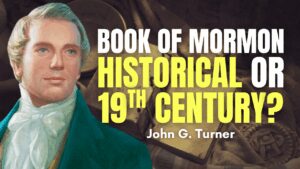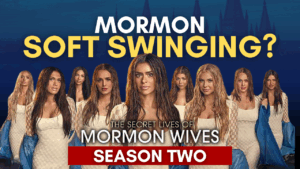Co-host: Nemo the Mormon
Stephen Bullivant holds professorial positions at St Mary’s University, London, and the University of Notre Dame, Sydney. He has doctorates in theology (Oxford, 2009) and sociology (Warwick, 2019). His studies of contemporary nonreligiosity have received wide international coverage, including from the BBC, New York Times, Economist, Financial Times, and Der Spiegel.
The United States is in the midst of a religious revolution. Or, perhaps it is better to say a non-religious revolution. Around a quarter of US adults now say they have no religion. The great majority of these religious “nones” also say that they used to belong to a religion but no longer do. These are the nonverts: think “converts,” but from having religion to having none. There are currently has about 59 million of them in the United States.
Nonverts explores who they are, and why they joined the rising tide of the ex-religious. One of world’s leading experts on contemporary atheism and nonreligiosity, sociologist and theologian Stephen Bullivant draws on dozens of interviews, original analysis of high-quality survey data, and a wealth of cutting-edge studies, to present an entertaining and insightful exploration of America’s ex-religious landscape. Bullivant criss-crosses the country, talking to everyone from ex-Mormons in Utah to ex-Catholics in Pennsylvania, from ex-Evangelicals in Georgia to ex-Muslims in California, showing not only what they have in common but also how the traditions they left behind continue to shape them.
While American religion is not going to die out any time soon, ex-Christian America is a growing presence in national life. America’s religious revolution is not just a religious revolution–it is catalyzing a profound social, cultural, moral, and political impact. Nonverts will serve as an indispensable guide to this shifting landscape, as well as the future of American life.
Join John and Nemo as they dive deeper into just why it is that people leave the LDS church.
Nonverts: The Making of Ex-Christian America
Mormon Stories Thanks Our Generous Donors!
Help us continue to deliver quality content by becoming a donor today:
- One-time or recurring donation through Donorbox
- Support us on Patreon
- Pick “Mormon Stories” as your charity on Amazon Smile or through the Amazon App
Our Platforms:
- YouTube
- Patreon
- Spotify
- Apple Podcasts
Contact us:
MormonStories@gmail.com
PO Box 171085, Salt Lake City, UT 84117
Social Media:
Show Notes:
Mormon Stories Related Content
- 1250-1251: Why the Mormon Church Has Declining Growth Rates in Utah and the World – 2020 Edition
- 1462: New Temples Veil Mormonism’s Decline – Simon Southerton
- 1443-1447: Recovering Agency – Examining Mormon Mind Control w/ Luna Lindsey Corbden
Other Content




4 Responses
The part about your parents finding out from tithing settlement is almost exactly how it went down for me. My parents ward clerk saw the record change come across and was confused so he went to the bishop about it. The bishop, their son in law, noticed the difference and told my parents. My mom then proceeded to call all my siblings and her siblings but never talked to us about it. I found out about this whole thing from my sister. The church makes sure officially leaving is uncomfortable and frankly scary.
In Britain large sections of the working class gave up on religion during the Industrial Revolution of the late-eighteenth and nineteenth centuries. The new and emergent cities, with slum housing, lack of sanitation etc also lacked churches. Many who drifted into industrial life did not take their village practices, such as church attendance with them. American industrial society developed in a different way – small towns etc. Hence the sociology of religion followed different patterns. There are marked differences between Britain and America in the juxtaposition of religion and politics. Many American “believers” express right-wing values – for example. In Britain religious people are often liberal-minded and middle-class. In other words there are huge differences in religious culture before you get anywhere near to the Second World War – though I have no doubt that that had an important effect.
Stephen’s comments on the different effects of the Cold War in America versus in Britain/Europe seem apposite to me.
Working-class politics, trade-unionism, left-wing militancy etc were, in the early twentieth-century more influential in Europe than they were in America. It had the effect of creating a unitary society – left-wing unions v capitalist management. One of the reasons religion survives in America, it seems to me, is because it has more diverse communities, who depend upon their churches to provide much of the social glue that is provided in the pubs, working-mens clubs, and union chapels of industrial Britain. Though there are those who will argue that the Labour Party in Britain owes more to Methodism than it does to Marxism. And there were other specific religious movements in the UK, apart from Wesley’s, which were directed at the working-classes such as the Salvation Army.